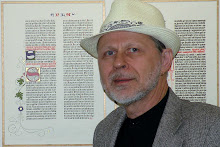Can a School Library Be Replaced by E-Readers? Apparently, it Can
According to Cushing Academy: "Above all, it is important to know that Cushing Academy is not going "bookless." The issue at hand is merely one of offering books via an electronic or printed medium; many teachers continue to assign printed books in their courses, and students are encouraged to read literature in any format they find most convenient."
The original story broke in "The Boston Globe" back in September, but with all the excitement over new eBook readers the past week in Las Vegas, it certainly bears looking at more in depth. James Tracy, Headmaster at Cushing spent a good part of the aftermath of the article responding to readers with answers to questions and comments about the move. It was not undertaken lightly. According to Headmaster Tracy:
Our research found that, of a library of 20,000 printed books, only 48 were circulating at any given time, on average, and more than thirty of those were children's books taken out by the families that live on campus. When we spoke with students, they told us that they were not using the books on-site for research, either. Teachers confirmed that students mostly cited on-line sources in their papers.
We decided that we would provide students with much richer on-line database sources, including access to full-text, peer-reviewed journals, to teach them how to select out the most reliable content from all of the junk that they will encounter as students and professionals in the 21st century.
There are key elements to keep in mind regarding this transformation.
- Cushing Academy is already on the cutting edge regarding the use of computers by students. All students are issued laptops, regardless of economic standing. Within the Cushing community, there is not a digital divide.
- Both students and teachers continue to have the option of using print, electronic, or combinations in both research and pleasure.
- The transformation emphasizes the library space as a place to gather and discuss, rather than a place to isolate and immerse.
On my computer and my two eReaders, I have hundreds of eBooks. I check eBooks out from the local public library on a regular basis. My home also has hundreds of print books, newspapers, and magazines, some dating back as far as the early 1800s. While we are most definitely in a transitional era regarding media, I can't help but think Cushing is giving its students a great boost when it comes to the future of reading and even surviving in the near future.

No comments:
Post a Comment